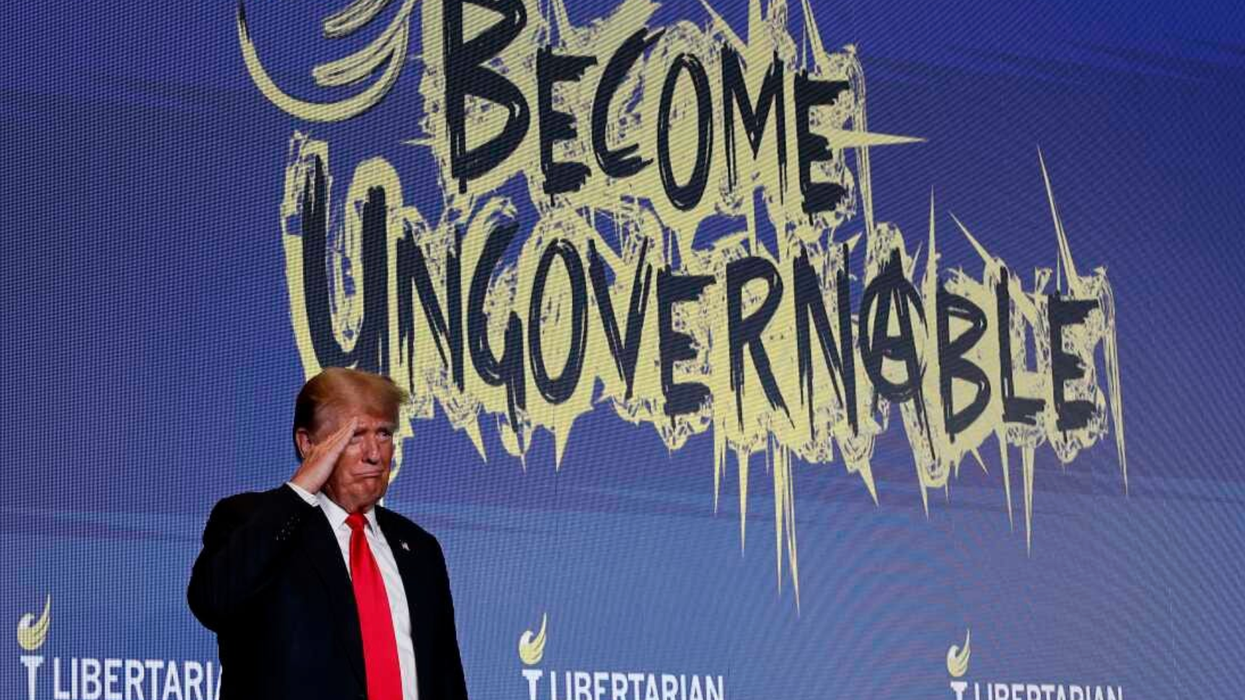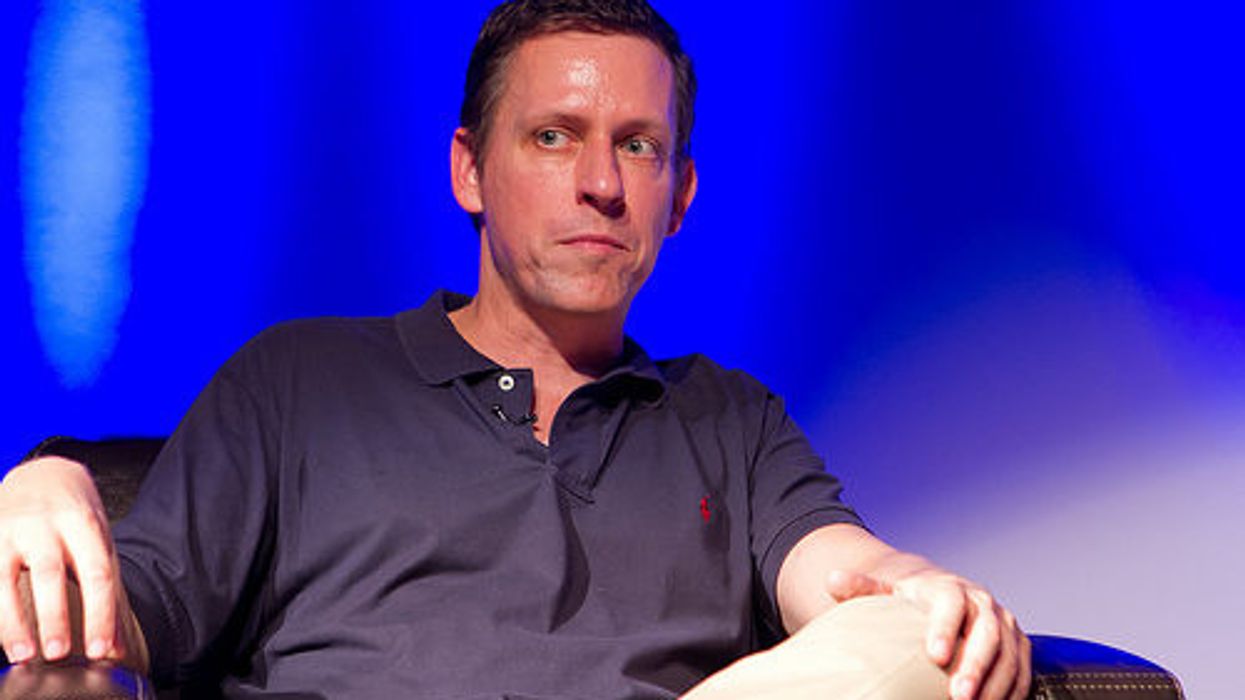Is Donald Trump Pro-Crypto Or Pro-Crime? (Is There Really A Difference?)
On one side, the Trump administration is sinking small boats that it claims, without evidence, are smuggling drugs — and according to the Washington Post, Pete Hegseth, the self-styled Secretary of War, has personally ordered at least one follow-up strike to kill the survivors. A working group of former JAGs, that is, members of the military’s legal branch, issued a statement declaring that it
unanimously considers both the giving and the execution of these orders, if true, to constitute war crimes, murder, or both.
On the other side, Donald Trump has declared his intention to grant “a Full and Complete Pardon” to Juan Orlando Hernández, a former president of Honduras who has been convicted of conspiring to import cocaine into the United States. In fact, Hernandez was part of a cartel, including his brother, that smuggled hundreds of tons of cocaine into this country.
At first glance, the juxtaposition seems bizarre – Trump is either murdering or committing war crimes against people who are at worst small-time drug smugglers, and may be innocent fishermen, while pardoning a drug lord who was responsible for thousands of American deaths while savaging his own country, Honduras. But there is a pattern to this murderous madness, once one connects the dots between Trump’s mob-boss persona and the billionaire crypto/tech broligarchy.
First, understand that Trump’s vendetta against purported penny-ante drug smugglers is all about dominance display, an exhibition of his ability to order violence. The real object may be to set the stage for invadingVenezuela.
Second, while Trump is clearly willing to inflict gratuitous suffering on the little people, he positively revels in his association with big-time criminals, whether it’s Putin; or Saudi Crown Prince Mohammed bin Salman, who had a critical journalist dismembered with a bone saw; or Ross Ulbricht, creator of Silk Road, an underground e-marketplace known for drug trafficking, whom Trump pardoned immediately after assuming office; or Larry Hoover, a Chicago crime boss, who was sentenced to several lifetimes in prison for leading the Gangster Disciples, also pardoned by Trump. Yes, Trump really and truly cares about crime in Chicago.
Still, why would Trump, whose poll numbers are cratering, generate even more negative headlines by pardoning Hernández, who was duly convicted of conspiring to send more than 400 tons (!) of cocaine to America?
The answer is the influence of the crypto/tech broligarchy. In fact, many of Trump’s pardons of the most egregious criminals are closely linked to their influence.
A case in point is Ulbricht, whose Silk Road was an early example of what is still the main non-speculative use of Bitcoin: facilitating criminal activity. Ross Ulbricht was a darling of the tech-libertarian crowd, which includes Peter Thiel, arguably the godfather of Silicon Valley and whose financial backing was critical to JD Vance’s senate win. Trump first promised to pardon Ulbricht in 2024, as part of a pitch to win the votes of libertarians:
Whatever libertarians were in the past, they are now an extremist party, opposed to laws against drug smuggling, money laundering, any type of prudential government regulation, and – in the case of Thiel – opposed to democracy itself. It should not go unnoticed that Trump saluted a party that proclaims “Become Ungovernable” as its guiding principle, written with the anarchy a-symbol.
Next, Trump’s pardon of Changpeng Zhao, aka CZ, the former CEO of the cryptocurrency exchange Binance, fits the same pattern. CZ pled guilty to charges of violating U.S. laws against money-laundering and was fined $50 million, in addition to a fine of $4.3 billion against Binance. Under CZ, Binance was a major channel of worldwide money laundering. As one report put it, prosecutors charged that Binance
intentionally and purposefully ignored the transfer of money from countries and areas that are subject to sanctions -- including Syria, Iran, Cuba, Russia-occupied Crimea and the Donbas region in Ukraine. There was also trading that involved the criminal dark-web market Hydra.
And the story continues. Last week,
The families of 300 U.S. citizens hurt or killed in the Oct. 7 attack on Israel sued Binance, claiming the cryptocurrency exchange aided Hamas and other terrorist groups by transferring more than $1 billion among accounts they controlled.
However, in the world of radical libertarians, of the crypto/tech broligarchy, CZ’s crimes weren’t real crimes because crypto is designed to “free” us from the pernicious oversight of government. Yes, Trump really cares about stopping terrorism.
Finally, why pardon Hernández? What’s the connection to the crypto/tech broligarchy? It’s called Próspera.
Próspera is a for-profit city being built off Honduras’s coast. Its charter largely exempts the island from Honduran law. Instead, the city is run by a governing structure that for the most part gives control to a corporation, Honduras Próspera Inc., which is in turn funded by a familiar list of Silicon Valley billionaires including Thiel, Sam Altman and Marc Andreesen.
So while the city is being marketed as a libertarian paradise, it’s best seen as an autonomous oligarchy, government of, by and for billionaires. And you won’t be surprised to learn that within Próspera, Bitcoin is legal tender.
The 2013 Honduran law that made the creation of Próspera possible was initially ruled unconstitutional by the Honduran Supreme Court. But that ruling was reversed after Juan Orlando Hernández’s predecessor, Porfirio Lobo Sosa, managed to dismiss four of the court’s justices. Like Hernández, Sosa was a right-winger, who became president after a populist president, Manuel Zelaya, was overthrown by a military coup. Under both Hernández and Sosa, chaos reigned – corruption, criminal gangs, and drugs overran the country. The current president, Zelaya’s wife, has tried to claw back some sovereignty over Próspera, which has struck back with a mammoth lawsuit that could bankrupt the country.
Yesterday Honduras held an election in which Trump backed Nasry Asfura, a member of the same right-wing party as Hernández. Early results show the governing left-wing party well behind, but Asfura in a virtual tie with another right-wing candidate.
In any case, the point is that while Trump threatens and fulminates against Maduro in Venezuela, he is openly backing the Honduran political party that has allowed massive drug smuggling into the U.S. Why? The only logical answer is because of the influence of the crypto/tech broligarchy and their interests in Próspera.
So the announced pardon of Hernández for drug smuggling isn’t really a departure from the pardons of Binance’s Changpeng Zhao for money laundering or Silk Road’s Ross Ulbricht for facilitating illicit drug sales. In each case what’s being upheld is the principle that lawlessness in the pursuit of tech billionaires’ interests is no vice. In fact, it’s to be encouraged.
And Trump, whose only principles appear to be self-enrichment and vindictiveness, is happy to go along.
Paul Krugman is a Nobel Prize-winning economist and former professor at MIT and Princeton who now teaches at the City University of New York's Graduate Center. From 2000 to 2024, he wrote a column for The New York Times. Please consider subscribing to his Substack.
Reprinted with permission from Paul Krugman.












